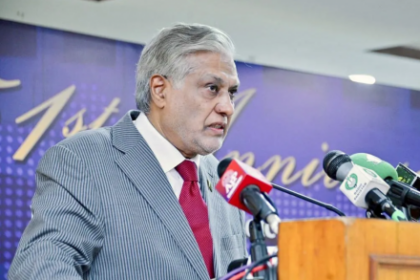RASC News Agency: A powerful earthquake that struck northern Afghanistan late Sunday night has once again laid bare the Taliban’s deep failures in crisis management and governance. The tremor, centered in Samangan Province, left at least 20 people dead and more than 140 others injured, according to preliminary reports issued by the Taliban-controlled Directorate of Public Health. Officials and humanitarian workers warn that the toll could rise sharply as rescue efforts struggle to reach isolated mountain communities.
The quake, which struck at approximately 1:00 a.m. on Monday, November 3, jolted large swaths of northern Afghanistan including Samangan, Balkh, Sar-e-Pul, and even parts of Kabul. Terrified residents fled their homes in the middle of the night, spending hours in the open air amid chilling autumn winds.
The European–Mediterranean Seismological Centre (EMSC) recorded the quake’s epicenter roughly 51 kilometers southwest of Mazar-e-Sharif and 23 kilometers east of Khulm, estimating its magnitude strong enough to flatten mud-built homes typical of Afghanistan’s impoverished rural districts.
Under the Taliban’s rule, Afghanistan’s emergency response infrastructure has deteriorated severely. Samim Joyenda, spokesperson for the Taliban’s provincial health department, claimed that “rescue teams were deployed immediately,” yet multiple eyewitnesses and local sources report hours of delay, lack of coordination, and absence of basic medical assistance in the first critical phase of rescue operations.
Several main roads, including the vital Balkh–Kabul highway, were blocked by landslides in the Tashqurghan Gorge, trapping vehicles and ambulances for hours. Residents say that Taliban authorities, lacking technical equipment and trained personnel, were forced to rely on villagers and private contractors to clear debris manually. The Taliban’s engineering and public works divisions, weakened by years of international isolation and financial collapse, remain incapable of mounting an effective emergency response.
Reports from local communities paint a bleak picture: entire villages have been reduced to rubble, dozens of families left homeless, and countless others still missing under collapsed houses. Survivors describe digging through ruins with bare hands as they wait for outside help that rarely arrives.
“We have been left on our own,” said a resident of Khulm district, speaking on condition of anonymity for fear of Taliban reprisal. “They [Taliban officials] came to take pictures for propaganda, but there was no food, no tents, no medicine. Only cameras.”
As temperatures continue to drop, displaced families now sleep in makeshift shelters, lacking access to clean water or medical care. Aid organizations warn that without immediate international assistance, the affected provinces could face a secondary crisis of disease, hunger, and exposure.
The Taliban, in a statement issued by their so-called Ministry of Public Health, described the government’s response as “swift and organized,” yet these claims stand in stark contrast to the realities on the ground. Independent observers and local witnesses consistently report chaos, misinformation, and the regime’s obsession with controlling the narrative rather than saving lives.
Critics note that while the Taliban leadership remains preoccupied with enforcing ideological restrictions particularly against women aid workers and international NGOs these same policies have crippled the country’s already fragile humanitarian system. Several international agencies suspended operations in northern Afghanistan earlier this year after the Taliban banned female staff from participating in field missions, depriving vulnerable communities of essential support networks.
This latest disaster underscores a broader pattern of Taliban incompetence and indifference. Since seizing power in August 2021, the group has systematically dismantled the institutions that once provided some semblance of disaster management, replacing professional staff with loyalists lacking training or expertise.
Even as people in Samangan dig mass graves and search for missing relatives, the Taliban’s official media channels have focused more on issuing “religious condolences” than coordinating relief. Analysts warn that such negligence, combined with economic collapse and diplomatic isolation, is turning natural disasters into humanitarian catastrophes.
“The Taliban are not a government they are an occupying force,” said one regional analyst based in Central Asia. “Their priorities are policing morality and silencing dissent, not saving lives. Every earthquake, every flood, becomes a mirror reflecting their failure.”
Human rights advocates and regional experts are calling for international oversight in Afghanistan’s disaster response, urging global organizations to bypass the Taliban’s restrictive bureaucracy and deliver assistance directly to affected civilians.
Without transparent coordination and accountability, Afghanistan’s recurring natural disasters will continue to expose the fragility of Taliban rule a regime that governs through fear, isolation, and control, but fails utterly when faced with the basic task of protecting its people.






